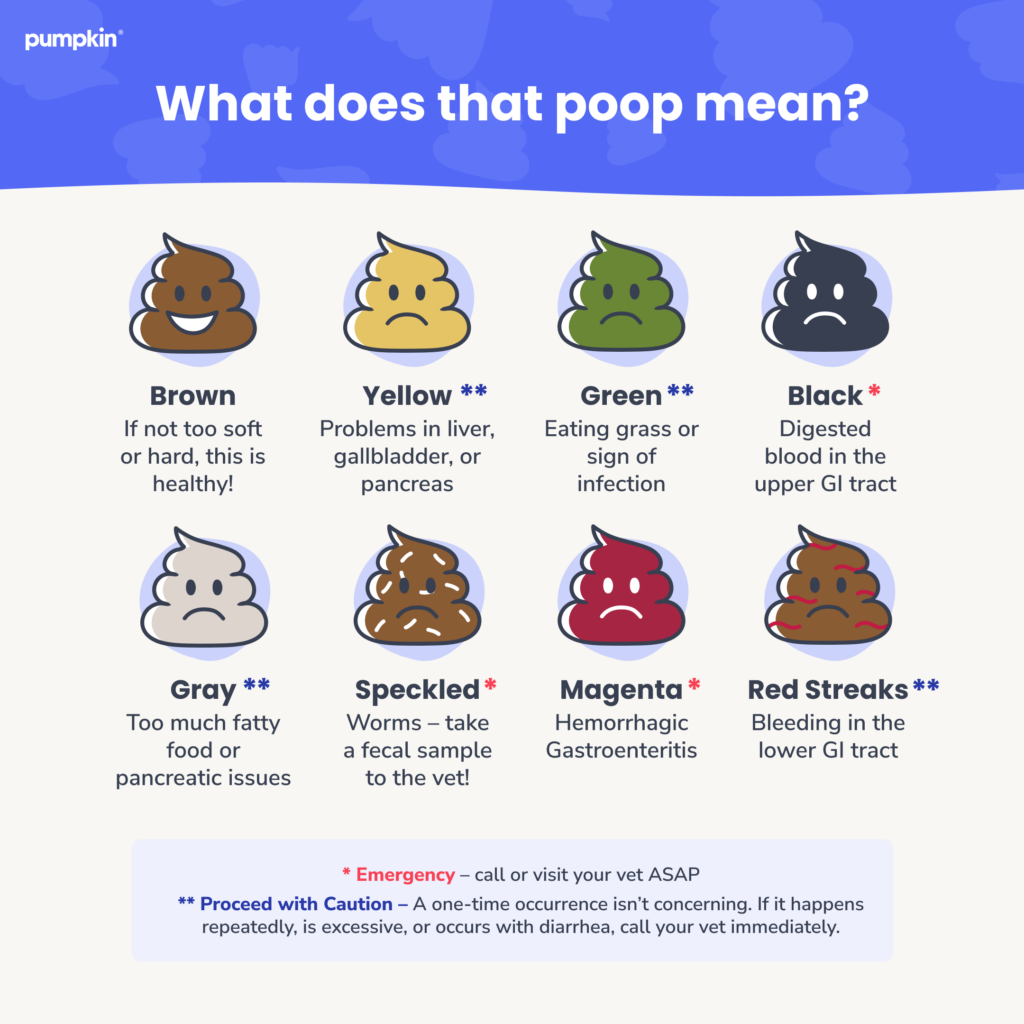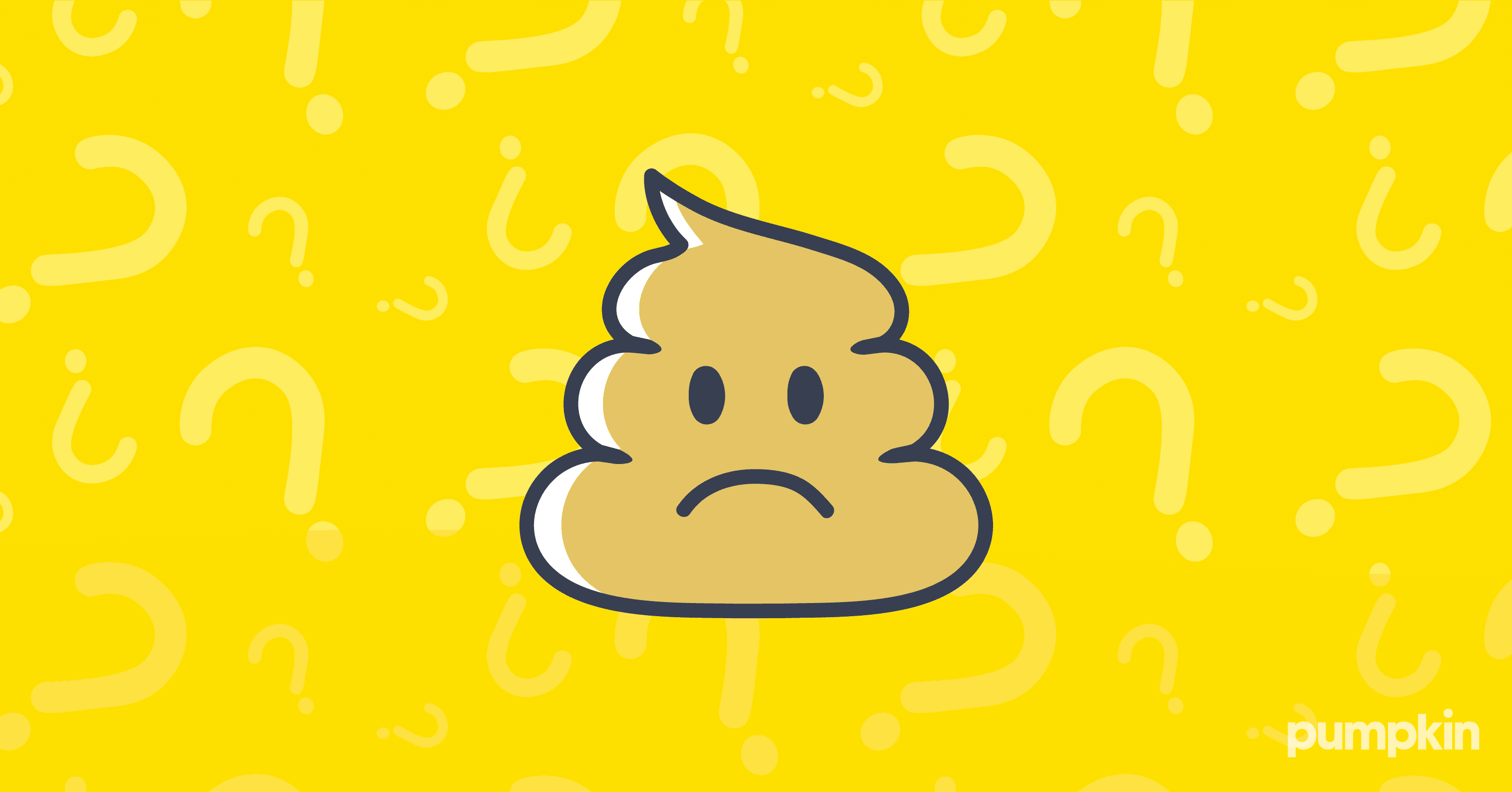Key Points
- Yellow dog poop is caused by a variety of factors that range in severity.
- Most often, it indicates a food intolerance, but it can sometimes indicate more serious health issues.
- See your vet if yellow dog poop persists for more than one or two days or other symptoms appear.
What causes yellow dog poop? From food intolerance to dietary allergies, yellow dog poop can be caused by various factors. If your dog’s yellow poop is non-recurring, it’s highly possible that they’ve simply eaten something out of the ordinary.
“Yellow dog poop is often due to a disruption in digestion, something that speeds up the digestive process,” explains veterinarian Dr. Chyrle Bonk, DVM. “This can be due to irritation from infection, foreign body, change in food, parasites, or eating something they shouldn’t have. It can also be due to issues with the liver or gallbladder or something like inflammatory bowel disease.”
Potential causes of yellow stool in dogs:
Just like human feces, dog poop can change color and consistency based on changes to diet, behavior, or hydration. Yellow stool may have specific causes such as:
- Food intolerance or food allergies
- Change in diet
- Digestion issues
- Bacterial or parasitic infection
- Pancreatitis
- Gallbladder issues
- Liver issues
- Inflammatory bowel disease
- Irritable bowel syndrome
- Intestinal worms like tapeworms
Other symptoms to watch out for:
- Lethargy
- Lack of appetite
- Weight loss
- Constipation
- Diarrhea
- Upset stomach
- Fever
- Yellow color to the skin or eyes
Yellow poop accompanied by lethargy, fever, or abdominal pain could be a sign of a greater health issue, so be sure to keep a close eye on your dog’s behavior. Always seek veterinary help if the yellow coloring of your dog’s stool persists for more than a day or two.
Tip: If your dog is used to a certain brand or type of dog food, a sudden change in diet could lead to yellow mucus or bile in your dog’s stool. To prevent this from happening, it’s better to slowly incorporate new food into your dog’s diet rather than abruptly changing what they eat.
What to do if your dog’s poop is yellow
When your dog’s poop turns yellow, the first step is to observe your pup’s diet. A change to their food is the most likely cause of their yellow poo. If the problem persists, try returning to their original diet and see if the color of their poop returns to normal.
Dr. Bonk also recommends a bland diet if you think your dog’s yellow poop is linked to food intolerance. “If your dog doesn’t have any other signs, such as vomiting, a fever, stomach pain, or lack of appetite, you can try withholding food for 12-24 hours and pushing hydration,” she explains. “After the initial fast, start your dog back on a bland diet like chicken and rice. Feed small amounts of this bland food frequently throughout the day. Adding probiotics can also help.”

If the color of your pup’s poop remains yellow, be sure to seek veterinary advice. A stool sample will likely be required for your vet to further determine the cause of your dog’s yellow poop. Your vet may also perform blood tests to determine whether your pup has an infection or an underlying health problem. Depending on the cause, your dog may need deworming, nutritional supplements, or a different treatment to help balance their gut bacteria and get their digestion back on track.
In addition, if your dog has yellow poop, be sure to:
- Offer them plenty of fresh water
- Feed them a bland diet
- Try probiotics
- Keep a close eye on their bowel movements
When to seek veterinary help
Contact your vet for assistance if:
- The yellow color is recurring or continues for more than a day or two
- Your dog shows behavioral changes such as lethargy, lack of appetite, vomiting, or diarrhea
- Your dog has a fever
Yellow dog poop: The bottom line
Generally, yellow dog poop indicates a food intolerance or change in diet. If the problem goes away on its own, then yellow stool likely isn’t a sign of deeper health issues. However, recurring yellow poop in your dog could be linked to more serious gastrointestinal (GI) tract issues or even liver disease.
It’s always a good idea to check in with your vet if your dog has recurring yellow poops, or if the stool is accompanied by major behavioral changes or other worrying symptoms.
Through good digestion and bad, you want to be able to give your pup the best care possible. Pumpkin Dog Insurance plans give you the option of 90% cash back on vet bills for covered accidents and illnesses.




